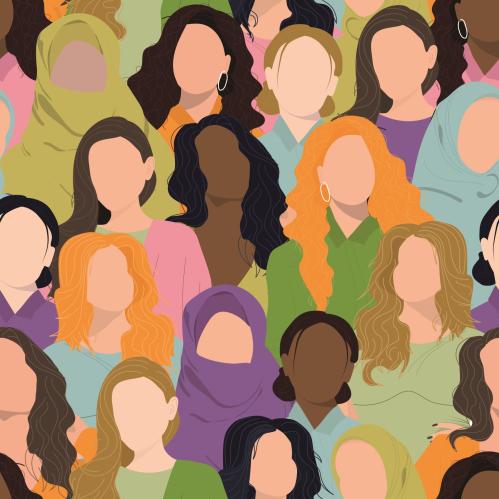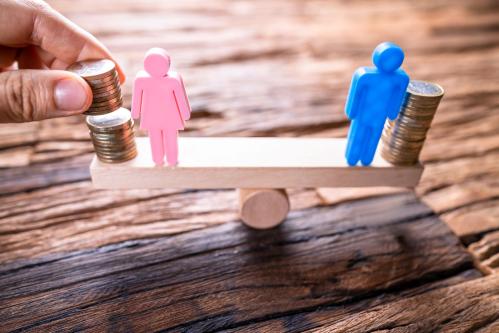The ongoing COVID-19 pandemic, the ensuing lockdowns, and the near standstill of the global economy have led to massive unemployment in many countries around the world. Workers in the hospitality and travel sectors, as well as freelancers and those in the gig economy, have been particularly hard-hit. Undoubtedly, unemployment is often an economic catastrophe leading to financial distress, personal debt, poverty, and economic vulnerability. Unemployment benefits may cushion the financial shock, at least for those who are eligible to receive them. But in countries with weaker social safety nets, including the United States, financial distress following unemployment is especially salient.
Yet, job loss entails much more than losing an income. People who lost their jobs due to the coronavirus crisis speak about the psychological burden of being unemployed. Many scientific studies confirm the insights from these personal stories: Unemployment leads to large and lasting unhappiness due to the loss of social identity, contacts with colleagues, and stigma. The misery of losing a job can be pervasive, especially in countries with less generous unemployment benefits.
In recent work, we show that while losing a salaried job is terrible for one’s psychological well-being, losing one’s business is even worse. We analyze rich German survey data following individuals over time and focus on the changes in life satisfaction and health satisfaction following voluntary and involuntary business exits. Our findings suggest that the drop in life satisfaction associated with losing self-employment and becoming unemployed (i.e., an involuntary business exit) is greater than the drop in life satisfaction following losing a regular job, as shown in Figure 1.
The more pronounced misery associated with losing a business compared to losing a salaried job could be due to several factors. First, business failure can lead to large financial losses that exceed the declines in income associated with losing a salaried job. Self-employed people are more likely to run into debt, and unemployment benefits are not always available for former business owners in Germany. Second, losing self-employment has large psychological costs. Most entrepreneurs see their work as being central to their lives and future aspirations, as well as their personal growth and development beyond the mere potential for financial gain. Because the identity of the entrepreneur is often closely tied to his/her business, it is more difficult to separate professional from personal failure. Therefore, people who enter unemployment after a business exit may be more likely to fare worse psychologically compared to their counterparts who lose a salaried job.
The psychological costs of losing a business can also worsen the health of the former owner. As shown in Figure 1, former business owners also experience declines in their self-reported health. In addition, our findings suggest that the mental health costs of business failure exceed the benefits of starting a new business venture. Meanwhile, physical health indicators and health behaviors such as drinking and smoking are unaffected, which implies that the changes in life and health satisfaction that accompany the switches from self-employment to unemployment are largely due to worsening mental health.
Figure 1. Life satisfaction and health satisfaction changes due to losing self-employment and salaried employment
Source: Authors based on data from the German Socio-Economic Panel v.34
Notes: The figure illustrates the estimated changes in life satisfaction and health satisfaction following the switch from self-employment to unemployment (left panel) and salaried employment to unemployment due to a company closure (right panel) based on difference-in-differences estimations. The dashed lines refer to the 95 percent confidence interval. Life satisfaction and health satisfaction are measured on a scale ranging from 0 (completely dissatisfied) to 10 (completely satisfied).
Furthermore, while people’s life satisfaction typically stabilizes after most positive and negative life shocks, unemployment seems to be a striking exception. Our results complement this empirical observation by showing that, much like with the involuntary loss of a salaried job, the dramatic dip in life satisfaction associated with business failure persists for two or more years (Figure 2). In many countries, including Germany, failed entrepreneurs face social stigma, which may exacerbate the pain of losing a business and prolong the recovery process. The current outbreak may be changing social attitudes toward the unemployed, at least in the short run, but we still don’t know how people’s perceptions will change in the long run. Indeed, the mass unemployment induced by COVID-19 may initially trigger feelings of solidarity and compassion for those who lost their jobs and businesses. Over time however, the old stigmas regarding unemployment and failure will likely resurface once the economy reopens. Therefore, communities where entrepreneurs can openly talk about failure and share their experiences can help lessen the psychological costs of business exits and speed up the subsequent recovery.
Figure 2. Life satisfaction patterns before and after losing self-employment and salaried employment
Source: Authors based on data from the German Socio-Economic Panel v.34
Notes: The figure illustrates within-person changes in life satisfaction following the switch from self-employment to unemployment (left panel) and salaried employment to unemployment due to a company closure (right panel) based on fixed-effects regressions. The reference category is three or more years before becoming unemployed. The analysis sample in this graph is based on respondents who are observed three or more years before becoming unemployed and then remain unemployed for two or more years. The dashed lines refer to the 95 percent confidence interval. The x-axis denotes the number of years before and after becoming unemployed. The y-axis designates the change in life satisfaction. Life satisfaction is measured on a scale ranging from 0 (completely dissatisfied) to 10 (completely satisfied). The findings should be interpreted as the within-person change in life satisfaction with respect to the score three (or more) years before that person becomes unemployed.
Many studies find that self-employed people enjoy several advantages, such as autonomy, competence, and meaning that can lead to higher levels of job satisfaction. Consequently, the public policy recommendations of scientific papers often tout entrepreneurship as a means of enhancing both personal and social welfare. However, this paints a somewhat idealistic picture of the realities that those who start new ventures go through and what it really means to be “your own boss.” Many start-ups close down in less than a year, suggesting that business failure is a common experience.
Our research provides a better understanding of entrepreneurial well-being by focusing on the underwhelming but pervasive experience of business failure. Such insights are essential when assessing potential returns from starting a new business. They can be especially relevant for public policy since small business activity is highly valued and supported by governments around the world. In particular, our findings imply that support groups and communities can help entrepreneurs effectively deal with failure and carry on with their lives. Also, salaried work can cushion the psychological costs of business failure and be a viable alternative to some business owners. In this respect, public programs directed at helping failed entrepreneurs integrate quickly into the labor market can lead to significant welfare gains. Finally, our results imply that government support to entrepreneurs and small businesses during the coronavirus pandemic can serve a dual purpose. It can not only prevent the loss of livelihoods but also limit the enormous psychological suffering that can be especially scarring for those pushed out of their ventures.










Commentary
Losing your own business is worse than losing a salaried job
May 7, 2020